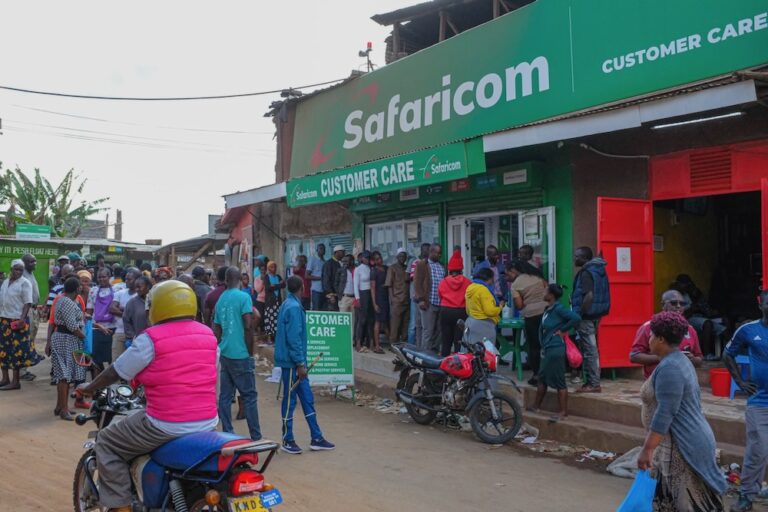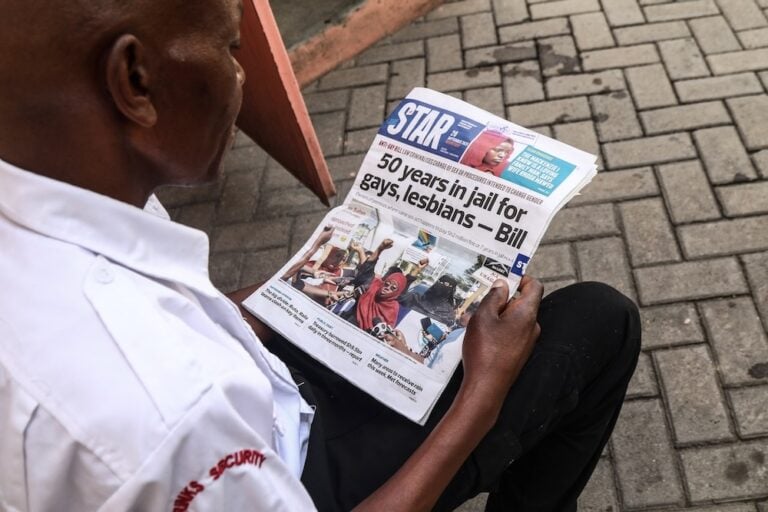(CPJ/IFEX) – In a 2 August 2000 letter to Kenyan President Daniel arap Moi, CPJ expressed its grave concern about proposed amendments to the Books and Newspapers Act that would dramatically increase the mandatory publication-licensing bond. Under the amended Act, new publications would be required to post a bond of 1 million shillings (US$13,459) as […]
(CPJ/IFEX) – In a 2 August 2000 letter to Kenyan President Daniel arap Moi, CPJ expressed its grave concern about proposed amendments to the Books and Newspapers Act that would dramatically increase the mandatory publication-licensing bond.
Under the amended Act, new publications would be required to post a bond of 1 million shillings (US$13,459) as security for any monetary penalty that might arise from criminal proceedings against them. This represents a hundred-fold increase over the current bond of ten thousand shillings (US$134.59).
Publishers that failed to post this bond would face fines totaling one million shillings, a three-year jail sentence, or both. Repeat offenders could be jailed for five years and banned permanently from publishing.
The proposed amendments also hold distributors and vendors of publications responsible for prior violations of the Act. As a result, any person who distributed a publication that had not paid the bond would be “liable for a fine not exceeding twenty thousand shillings (US$269) or to imprisonment for a term not exceeding six months, or to both,” whether or not they were aware that the bond had not been paid.
CPJ believes that the mandatory licensing-bond requirement in the original Books and Newspapers Act of 1905 violates the freedom of speech guarantees in Section 79 of the Constitution of Kenya. The proposed amendments would make matters worse. The organisation is calling on President Moi’s government to replace these archaic colonial statutes with legislation that upholds the Constitution of a modern democratic state.
“Punitive media legislation can only heighten the existing climate of hostility towards the Kenyan press”, said CPJ in its letter to Moi. On 12 June, for example, students from the Jomo Kenyatta University of Agriculture and Technology (JKUAT) stormed the Nairobi headquarters of the independent Nation media group, stoning the windows and destroying property.
This act of thuggery was carried out in response to an article titled “Drugs rampant at Kenyan varsity” in that day’s issue of the “Daily Nation”, which alleged extensive drug use at the university campus. According to CPJ’s sources, the police failed to prevent the rampage or control the rioting students (see IFEX alert of 13 June 2000).
The same day, Amos Majisu and Vincent Maluti, two journalists from the independent daily newspaper “The People”, were arrested and questioned over a 10 June article reporting allegations that police officers in Kakamega district had tried to rape a local woman. Although they were not charged with any offense, the journalists were detained and interrogated for several hours in an attempt to force a retraction, which they refused to do (see IFEX alert of 15 June 2000).
Recommended Action
Send appeals to the president:
– condemning both state and private violence against journalists
– expressing the belief that a state whose officials contribute to establishing an environment hostile to the media is at risk of losing both its credibility and its authority
– calling on his government to withdraw the proposed amendments to the Books and Newspapers Act in favor of a legal regime under which all journalists in Kenya may work in an atmosphere free of judicial or physical coercion
Appeals To
APPEALS TO:His Excellency President Daniel arap Moi
Office of the President
Harambee House
Nairobi, Kenya
Fax: +254 272 1515Please copy appeals to the source if possible.


